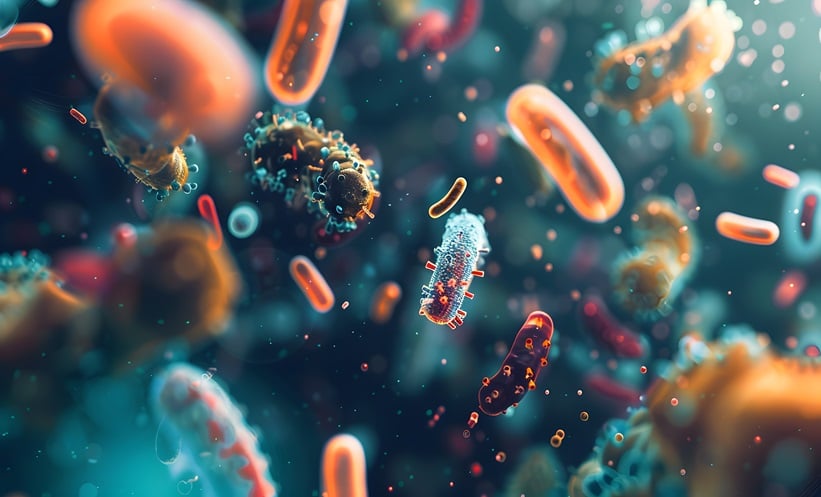NOVEL research has challenged conventional thinking around microbial associations with diseases like inflammatory bowel disease and colorectal cancer. Variations in microbial load, an aggregate measure of bacterial density, are more strongly associated with microbiome shifts and gut disease than microbial composition, the relative proportion of different species of microbes.
The research team, led by Peer Bork and Michael Kuhn from the European Molecular Biology Laboratory (EMBL), developed a machine learning model capable of predicting microbial load from the gut microbiome composition. They analysed 34,539 metagenomic samples across diverse populations from the large-scale EU-funded projects GALAXY/MicrobLiver and MetaCardis.
Surprisingly, more than 50% of previously identified disease-associated bacterial species lost their statistical significance when adjusted for microbial load, indicating that density rather than specific bacterial types might be driving these associations. Factors such as age, diet, sex, geographic origin, and prior antibiotic use significantly influenced microbial load. Females, on average, had a higher microbial load than men, while young people had a smaller microbial load than elderly people.
Physiological changes common in disease states, such as alterations in water content, oxygen levels, and gut pH, as well as physical changes like transit time, were shown to impact microbial load. Bacteria often linked to gastrointestinal symptoms appeared more directly tied to fluctuations in microbial load rather than to a specific disease state. For example, diarrhoea reduced the number of microbes in the gut, while constipation increased them.
Diseases known to affect bowel movement, such as Parkinson’s and Alzheimer’s, which often lead to constipation, were also associated with specific bacterial changes that may result from microbial load rather than disease-specific interactions. Additionally, drug treatments that influence gut motility, such as opioids and NSAIDs, were found to impact microbial load in similar ways.
To facilitate further research, the EMBL team released the Microbial Load Predictor (MLP) tool, which is freely available for predicting microbial load from relative species abundances. This tool allows researchers to reevaluate existing microbiome data sets with microbial load in mind, potentially leading to more precise biomarkers for disease.
The researchers suggest future studies will need to separate microbial load influences from disease-specific microbial signatures to refine microbiome-based diagnostics. Adapting this model to other microbiomes, like those in oceans or soil, could deepen understanding of microbial ecology beyond human health.
Reference
Nishijima S et al. Fecal microbial load is a major determinant of gut microbiome variation and a confounder for disease associations. Cell. 2024; DOI: 10.1016/j.cell.2024.10.022.








